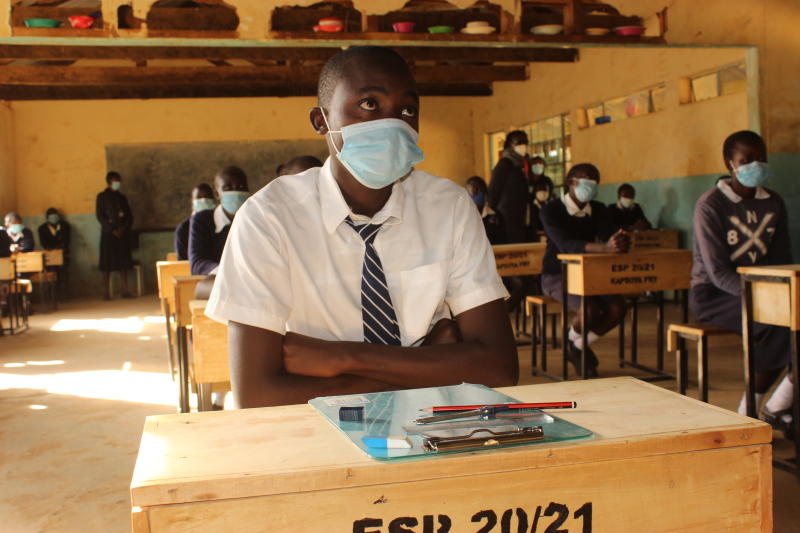
Students ready for K.C.P.E mathematics paper at Kapsoya Primary School, Uasin Gishu County on Monday, March 22, 2021 [Christopher Kipsang, Standard]
As we celebrate the release of the Kenya Certificate of Primary Education (KCPE) examination results with those who excelled, we need to keep in mind and plan for those who scored below average. They are our children and their fate should not be sealed out of the results of a single examination. With 100 per cent transition, a new categorisation is beginning to happen in secondary schools – learners are grouped in streams according to their KCPE scores and those with the lowest scores get very little quality contact and investment since they are expected to fail anyway!